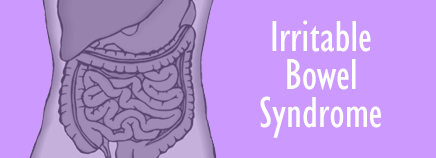
What Is Irritable Bowel Syndrome?
Irritable bowel syndrome (IBS) is a common intestinal problem that can cause cramps, gas, bloating, diarrhea, and constipation. It’s sometimes called a “nervous stomach” or a “spastic colon.” Certain foods can trigger the symptoms of IBS. So can anxiety, stress, and infections.
Although IBS can be uncomfortable and embarrassing for kids, it doesn’t cause serious health problems. Doctors can help kids manage IBS symptoms with changes in diet and lifestyle. Sometimes doctors will prescribe medicines to help relieve symptoms.
Causes of IBS
The specific cause of IBS is unknown, though it tends to run in families. Kids with IBS may be more sensitive to belly pain, discomfort, and fullness than kids who don’t have IBS. Some foods — like milk, chocolate, drinks with caffeine, gassy foods, and fatty foods — also tend to trigger IBS. Sometimes, people never find out what triggers their IBS symptoms.
Some kids with IBS tend to be more sensitive to stress and emotional upsets. Because nerves in the colon are linked to the brain, things like family problems, moving, taking tests, or even going on vacation can affect how the colon works.
Symptoms of IBS
People with IBS have belly pain or discomfort and a change in bowel habits (pooping). Other signs of IBS may include bloating, belching (burping), flatulence (farting), heartburn, nausea (feeling sick), and feeling full quickly.
IBS symptoms last for at least 3 months and include at least two of the following:
- pain or discomfort that feels better after a bowel movement
- pain or discomfort together with changes in how often a person has to go to the bathroom
- pain or discomfort along with changes in the way the stool (poop) normally looks. Some people get constipated and their stools become hard (and difficult to pass). Others have diarrhea.
Diagnosing IBS
There is no specific test for IBS. Doctors usually diagnose it by asking about symptoms and by doing a physical exam. Your doctor will also want to know if anyone in the family has IBS or other gastrointestinal problems.
Answering questions about things like gas and diarrhea can be embarrassing for kids. Assure your child that the doctor deals with issues like this every day and needs the information to help your child feel better.
The doctor may suggest that you help your child keep a food diary to see if certain foods trigger IBS symptoms. The doctor may also ask about stress at home and at school.
Most of the time, doctors don’t need medical tests to diagnose IBS, but sometimes they order blood and stool (poop) tests, X-rays, or other tests to make sure another medical problem is not causing the trouble.
Treatment
There’s no cure for IBS. But many things can help reduce IBS symptoms, including:
- Changes in eating. Some kids with IBS find that careful eating helps reduce or get rid of IBS symptoms. Your child might have to avoid milk and dairy products, drinks with caffeine, gassy foods, or other foods that seem to trigger the symptoms. Some people with IBS feel better when they eat smaller, more frequent meals.
- Changes in lifestyle. If your child’s IBS seems to be related to stress, talk about what you can do to help manage pressures related to school, home, or friends.
- Regular exercise. Exercise can help digestion. It’s also a great stress reliever.
- Medicines. Doctors sometimes prescribe medicines to treat diarrhea, constipation, or cramps. Antidepressants may help some people with pain management and depression. Talk with your doctor before giving a child with IBS any over-the-counter medicines for diarrhea, constipation, cramps, or other digestive problems.
- Counseling and coping strategies. If your child has a lot of anxiety or seems depressed, your doctor might recommend a child psychologist or therapist. Therapy, hypnosis, breathing exercises, or other relaxation techniques can help some people manage IBS.
IBS can affect your child’s quality of life. Talk with your doctor about ways to manage IBS to help your child lead an active and healthy life.

